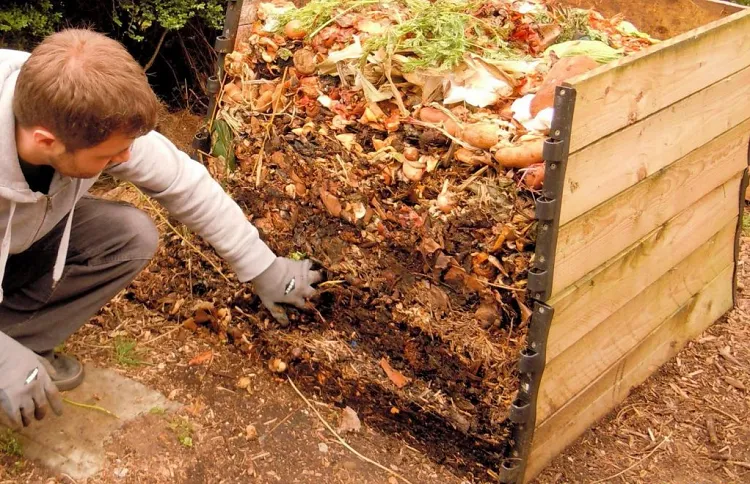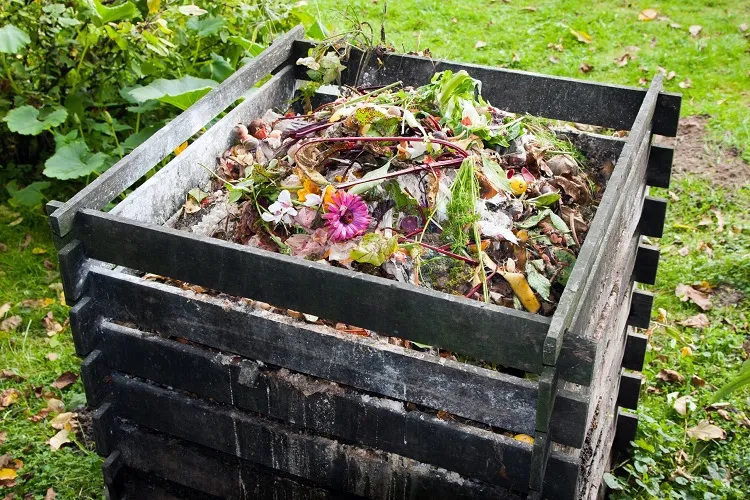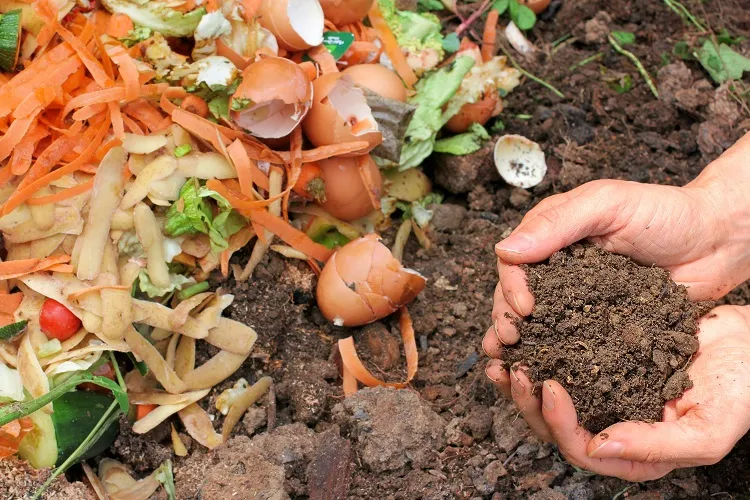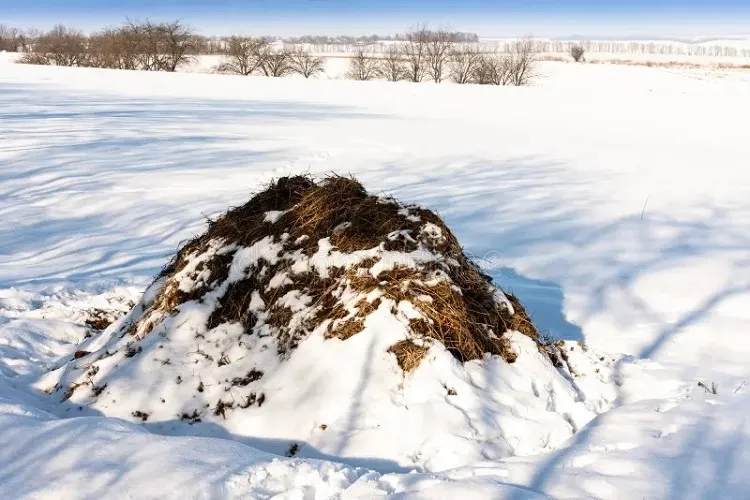Composting without a special vessel is not only an environmentally friendly practice but also results in the production of nutrient-rich organic fertilizer. By collecting kitchen scraps and garden waste, you can create a valuable resource that promotes healthier plants, improves soil quality, and contributes to a more balanced ecosystem. This article explores various methods and techniques for making compost without a composter, offering DIY solutions and insights into trench composting and winter composting. Discover how you can enhance your gardening practices and reduce waste through sustainable composting approaches.
By composting without buying a special vessel, you’re not only lowering your nature footprint, but producing an organic, rich in nutrients fertilizer. All you need to do is to collect your kitchen scraps and garden garbage, and start to produce this rich nutrition for healthier plants, enhanced soil, and a balanced ecosystem. Do you want to know how to make compost without a composter in details? Let’s have a look…
Do You Need a Compost Bin to Make Compost?
Composting is a pure, without chemicals, nature conserving way to lower waste and making your garden soil rich in plants’ nutrients. Many people assume that a special compost bin, or so-called composter, is vital for performing this process, but really, you can prepare your own wealth of elements and matter substances fertilizer without this specialized vessel. Composting in this way will not only empty your wallet, but will allow you to acquire a more hands-on way of sustainable gardening. Do you want to know how to make compost without a composter? It is easy to learn!
How to Make Compost without a Composter?
While compost bins or composters can give a comfortable and suitable space for composting, there are other possibilities you can use to reach the same success. These alternatives vary from simple approaches to DIY methods, like these:
How to DIY a compost bin: Making your own composted material can be a rewarding engagement. One pop DIY possibility is a compost bin from palettes. To build it, you’ll need 4 wooden pallets, which you can take for free from bazaars or stores. Arrange three pallets upright to form the back and the sides of your DIY bin, then assure them in place with nails or screws. You can use a fourth pallet as a hinged lid or leave the top open. This construction is useful for ensuring good ventilation, while keeping your compost contained.
Straw bale compost bin: This is another simply made DIY option. Just stack some straw bales in a quadratic or rectangular form, quitting a gap between them for easy access. The method is great for provisional composting or for houses with restricted space. If you’re searching for a more looking good and pleasing solution, think about reusing an old wooden barrel or a big container from plastic. Perforate 5–6 holes around the container to reach a good airflow, and put it in a suitable spot in your yard.
Also read: SOS Bad Smells in the Compost! What Are the Reasons and How to Fix Them?
Can You Compost Straight Into the Soil?
Do you know how to make compost without a composter, but simply using a garden bed for a vessel instead? Yes, doing this right in the soil is an applicable option, known as trench or pit composting. This includes digging a pit or hole in your garden, filling it with kitchen food patches and yard garbage, and then covering over with a layer of soil. Little by little, the organic matter dissociate, treating the soil beneath. To begin, select an area in your garden where you want to better the soil quality. Dig a trench or hole about 12–18 in (30-46 cm) deep. Then save food bits like fruit and vegetable peels, coffee grounds, and eggshells as an addition to your yard waste like leaves and small wood pieces, and just include them in the trench. Covering this garbage with a layer of soil hinders pests and eliminates odors. Trench composting has the privilege of incorporating biodegradable matter right into the soil, enhancing its structure and elements content. Though, it might not be a good idea to treat in this way larger quantities of matter.
Can You Compost in the Winter?
Composting is often considered to be connected with high summer temperatures and vigorous microorganisms’ activity. Though, performing it during the cold months is indeed possible, although with some little changes in the technology. As low temperatures can delay the decomposition action, there are ways you can utilize to go on the process even when the snow is falling. One efficient method for winter composting is to make an isolated pile. Start the process by choosing a snug spot in your yard, which is at least partly sun-lit. Make a greater pile than a common one, as the added volume will produce and retain the warmth better. Before you place these matters, prepare isolating materials like straw, hay, or dry leaves to put between the layers. They will serve as an organic isolation, which to keep the heat within the pile. Turning the organic mix regularly is very important for performing the process in winter. Doing this every few weeks is beneficial for aerating the mixture with oxygen, which is needed for the decomposition action. Turning the compounds distributes warmth and speeds up their breakdown.
Read also: How to compost in an apartment without odors and flies?
And: How to Make Liquid Compost? A Simple and Easy Method to Stimulate Soil Health and Fertility
Frequently Asked Questions
Do You Need a Compost Bin to Make Compost?
Composting does not necessarily require a specialized compost bin or composter. You can create nutrient-rich compost using alternative methods such as trench composting, winter composting, or DIY composting solutions like compost bins made from wooden pallets or straw bales. These methods allow you to engage in sustainable gardening practices without the need for a dedicated composter.
How to Make Compost without a Composter?
Making compost without a composter involves various DIY solutions like constructing a compost bin from wooden pallets or using straw bales to contain the composting materials. These homemade composting setups provide adequate ventilation and containment for the organic matter to decompose effectively, resulting in high-quality compost for your garden.
Can You Compost Straight Into the Soil?
Yes, you can compost directly into the soil using a technique known as trench or pit composting. This method involves digging a hole or trench in your garden, filling it with kitchen scraps and yard waste, and covering it with soil. Trench composting allows the organic matter to decompose directly in the soil, improving its nutrient content and overall structure.
Can You Compost in the Winter?
Composting in winter is possible with proper techniques to maintain the decomposition process despite cold temperatures. Creating an insulated compost pile, using materials like straw or dry leaves for insulation, and regularly turning the compost to aerate it are effective strategies for winter composting. These practices help retain heat and facilitate the breakdown of organic matter even in colder weather conditions.
What Are the Benefits of Composting Without a Composter?
Composting without a composter offers several benefits, including reducing waste sent to landfills, producing nutrient-rich fertilizer for plants, improving soil quality, and fostering a more sustainable gardening approach. By utilizing alternative composting methods, you can contribute to environmental conservation and create a healthier ecosystem in your garden.
How Long Does It Take to Make Compost Without a Composter?
The time required to make compost without a composter varies depending on factors such as the composting method used, the materials added, and environmental conditions. Generally, composting without a composter may take several weeks to several months to produce mature compost suitable for enriching soil and promoting plant growth.




